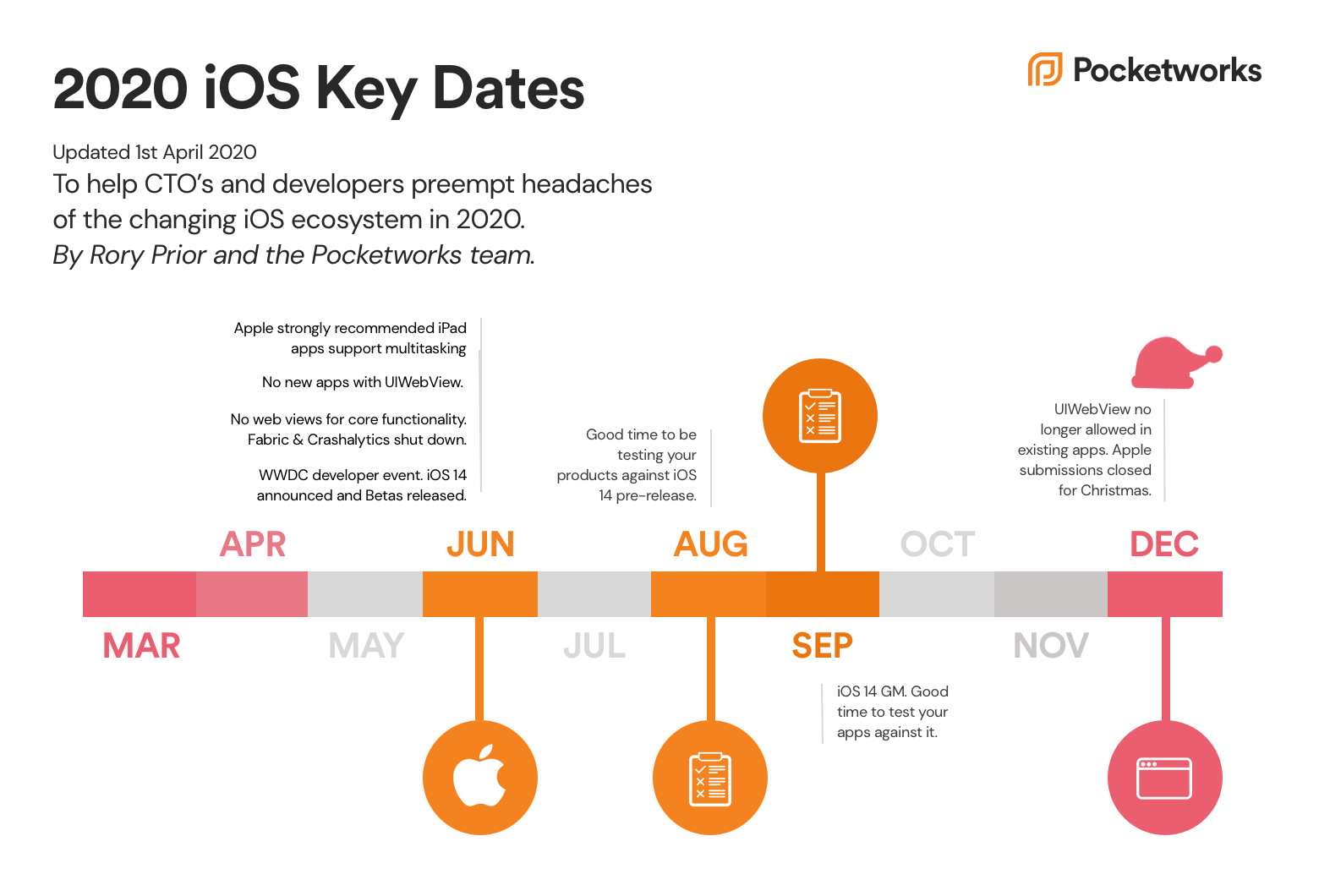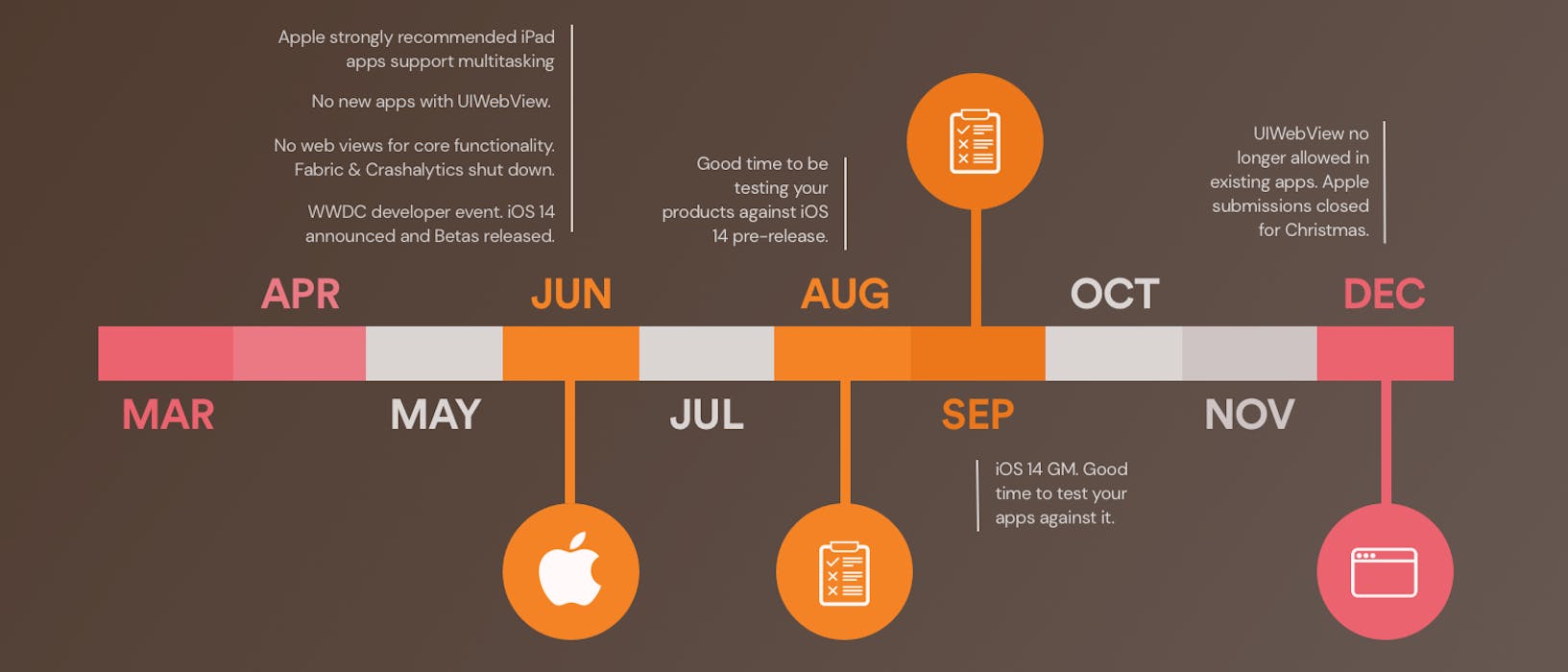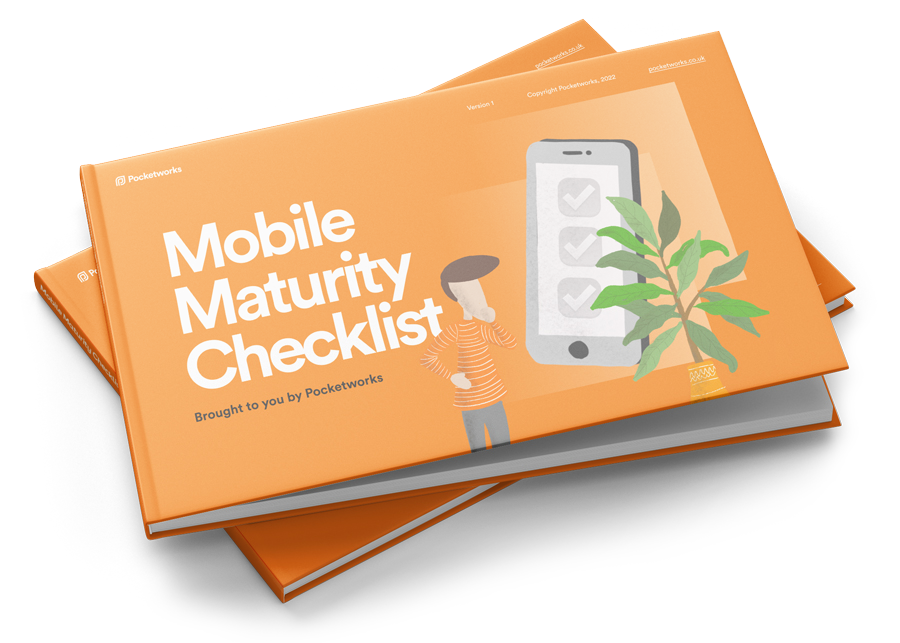NOTE: We'll be announcing the 2021 roadmap soon, follow us on LinkedIn or Twitter to find out when.
UPDATED: 1st April 2020. Fabric is now shutting down in May instead of March due to COVID-19. Apple app update deadlines have been pushed back, and WWDC is going online!
If you’re responsible for iOS apps in your business, this may help you deal with what Apple is throwing at us this year! This article talks you through the breaking changes that you need to prepare for in 2020.
2019 was a massive year for iOS and an unusually busy one for many of us in the world of mobile development. Apple introduced some exciting new technologies like the reactive Combine framework and eventual UIKit replacement SwiftUI. Then there was the fact that iOS 13 proved to be one of the most disruptive iOS updates since iOS 7 sent us all scrambling to adopt flat design. Some of the repercussions from changes Apple introduced with iOS 13 are still keeping us busy, and we got off relatively lightly!
As we march on into 2020, I thought it would be helpful to share some of the key dates I’ve compiled for our internal timeline. Some big gotchas are coming up frighteningly quickly! Hopefully, the worst of these your developers are already aware of and planning for, but just in case they aren’t, here goes!

Download a PDF of our iOS timeline infographic.
March
Deadlines bumped to June due to COVID-19.
April
None
May
Fabric Crashalytics and Answers is now shutting down on May 4th instead of March due to COVID-19. If you're using this you may want to consider looking at one of the other products such as Amplitude, Firebase or Flurry. We mention this in our Mobile Technology Radar too.
June
June loaded with new requirements and deadlines.
Apple will no longer accept apps that contain ‘core features’ provided through embedded web views. They mainly draw attention to apps that use this for donations, gaming and lotteries. We know this has been a significant headache for some of the big firms in this space, so hopefully, if this impacts your business, you’ve had this date in your mind for the past year already.
iPad apps must adopt split-screen multitasking (unless they have a very good reason to require full-screen, such as games).
iPhone apps must support all iPhone screens and all iPad apps must support all iPad screens.
Apps that authenticate or set up user accounts must support Sign in with Apple if required by guideline 4.8 of the App Store Review Guidelines.
As of April, you must build your apps against the iOS 13 SDK – this requires careful attention as apps that built and ran perfectly and predictably on iOS 12 will adopt certain new default behaviours that can cause all manner of problems. One particular change to watch out for is the new default modal presentation style that presents a view controller as a dismissable sheet. This allows the user to now swipe away these screens potentially bypassing your controller’s presentation logic, leading to crashes and unexpected behaviours.
Finally, if you’re using UIWebViews in your apps, hopefully, you’re aware these have been deprecated for some time now. Unfortunately, Apple is starting to tighten the noose; they will no longer accept new apps that use them from April. If you are still using UIWebView’s in existing apps, then you have a few more months to migrate to WKWebView or find another solution. This is a non-trivial task and if you were using some of the advanced functionality provided UIWebView you may find yourself with a lot of work to do.
WWDC
June is also WWDC time (Apple’s annual developer conference) which means iOS 14 beta 1 and a whole host of new technologies and frameworks will be coming out.
Note that WWDC will be held in an online format this year, although more details are yet to be released. Developers are told to keep an eye on their email to learn more.
Hopefully, it will be a quieter year given Apple got their fingers burnt last year with just how buggy iOS 13 was right up through its public debut, but it’s still likely there will be quite a lot to get our heads around. Also, expect your more eager developers to be chomping at the bit to get seriously into SwiftUI, which will likely be in a more complete and stable state.

